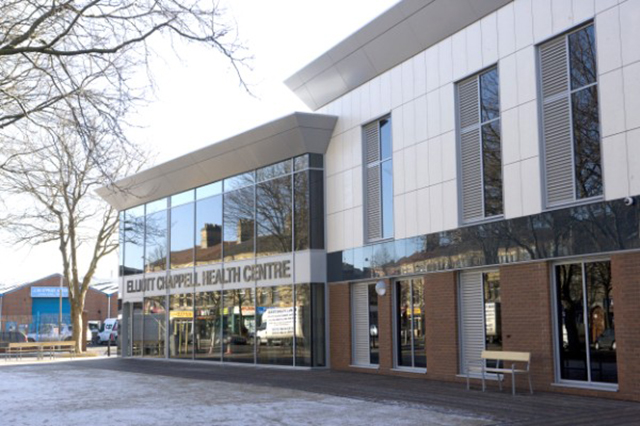The Bridge Group Practice
Elliottt Chappell Health Centre
215, Hessle Road
Hull
HU3 4BB
01482 30384001482 303840

Answer: This is the answer.


The Bridge Group Practice
Elliottt Chappell Health Centre
215, Hessle Road
Hull
HU3 4BB
01482 30384001482 303840

Answer: This is the answer.


Resources for people living with cancer
>> HULL & EAST RIDING BREAST FRIENDS>> MACMILLAN LOCAL FINDER>> MACMILLAN CANCER SUPPORT>> cancer research uk>> CANCER SUPPORT IN HULL>> CANCER SUPPORT HULL & ER FACEBOOK>> MACMILLAN CANCER SUPPORT EAST RIDING>> SUPPORT GROUPS HUMBER & N YORKS>> CANCER SUPPORT YORKSHIRE>> REGION CANCER ALLIANCEEnd of Life care means support for people who are in the last months or years of their life. It should help the person decide how to live as well as is possible and the die with dignity. In working on the care plan, those planning end of life care should take the individual's wishes and preferences into account. Support should also be given to family, carers or others important to the person.
It is the right of the person to express their wishes about the plane in which they would like to receive care and where they wish to die. Depending on needs and wishes, end of life care can be provided at home in a care home, a hospital or in a hospice.
From available data, it appears that there is a lower uptake of cancer screening amongst the LGBT community (gay, lesbian, trans, bisexual).
Failure to attend for cancer screening means that cancers may not be detected in the early stages. This may lead to a later diagnosis of cancer and risks worse experience and outcomes. Whilst there is no clear evidence to suggest that non-binary and trans people are at a heightened risk of cancer than cisgender people, there are certain factors that might affect the risk of particular cancers. This may have an influence of the type of recommended screening taking account of the sex assigned at birth, hormones and any surgery that may have been performed.
The prostate is a gland that is located below the bladder. It surrounds the urethra , which is the tube through which urine (wee) passes out of the body. People with a prostate include:
Trans women and people who are non-binary can still get prostate cancer. Tests should be undertaken if symptoms appear. The UK currently has no screening programme for prostate cancer.
>> PROSTATE CANCER SYMPTOMS, TESTS AND TREATMENTS>> PROSTATE CANCER & & TRANS WOMEN - INFO ON PROSTATE CANCERFailure to attend for cancer screening means that cancers may not be detected in the early stages. This may lead to a later diagnosis of cancer and risks worse experience and outcomes. Whilst there is no clear evidence to suggest that non-binary and trans people are at a heightened risk of cancer than cisgender people, there are certain factors that might affect the risk of particular cancers. This may have an influence of the type of recommended screening taking account of the sex assigned at birth, hormones and any surgery that may have been performed.
In clinical terms, people of all genders can get breast cancer and everyone has breast tissue. For everyone with significant breast tissue between the ages of 50 and 70 can access breast screening. This includes most:
Only people who are registered female at their GP surgery are automatically invited for cervical screening. If they wish to take part in screening, males may discuss their concerns with the GP practice.
>> SELF-CHECK BREAST CANCERThe cervix is located inside the body at the top of the vagina where it joins with the bottom of the womb. Cervical screening is offered routinely to anyone with a cervix between the ages of 25 to 64 years. Providing they have not had an operation to remove their womb this can include the following people:
In clinical terms, people of all genders can get breast cancer and everyone has breast tissue. For everyone with significant breast tissue between the ages of 50 and 70 can access breast screening. This includes most:
Cervical screening for trans men and non-binary people
Only people who are registered female at their GP surgery are automatically invited for cervical screening. If they wish to take part in screening, males may discuss their concerns with the GP practice. If they have a cervix and are registered as male, and aged between 25 and 64, they can:
Cervical screening for lesbian and bi women
Women who only have sex with women do need to attend for screening tests, in spite of misconceptions on the matter. The HPV virus can be transmitted during sexual activity. Lesbian and Bi women who have a cervix and who are between the ages of 25 and 64 years should attend for screening tests.
GPs are able to offer advice if there are any questions about cancer screening, Cancer Research UK are also a source of innformation on screening for non-binary and trans people.
>> CANCER RESEARCH UK SCREENING FOR NON-BINARY & TRANS PEOPLE